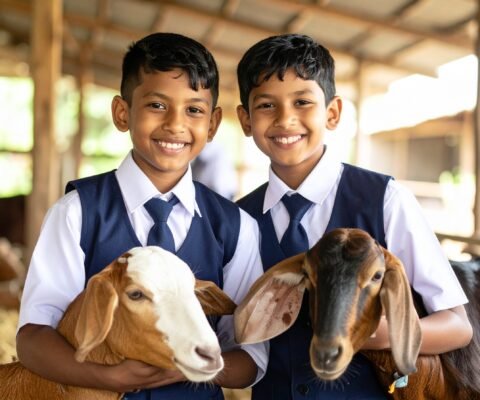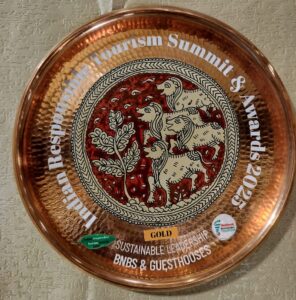Children typically respond to topics like gardens, farms, and food production by mentioning “amma” or “paati,” not “mom and dad.” Children today are only one generation removed from agriculture, and if they have any relationship to it at all. Most individuals lament the lack of agriculture knowledge among inner-city kids. Children in rural areas do not know much about farming, which is unfortunate. It is common knowledge that kids think their food comes from the grocery store, which is accurate.
Where do pickles come from? This is the most puzzling question you can ask a 9-year-old.
They appear to have the answer and will eventually be able to figure it out, but it is a difficult question.
Why should kids be aware of the origins of their food?
This can be summed by saying what people do not understand or appreciate; what they do not value, they will not protect; and what they do not cover, they will lose.” For youngsters to admire and wish to protect local agriculture. We want them to be knowledgeable about it. Because even grownups need to find out where their food originates, we must rely on food that has travelled thousands of kilometres.
While reconnecting kids with local agriculture, there are endless lessons to be taught on the farm from an educational standpoint. Farms must be more than just an idea.
For kids to properly comprehend what it’s like to live on a farm with all their senses, farms must be a hands-on experience. They will fully understand and recall new information the more they can touch, smell, and taste the things they are learning about. Don’t undervalue even the most straightforward jobs; kids adore gardening, harvesting, and assisting around the house. Children can learn about farming and develop an understanding of it when they believe the activities are actual and not just made-up games.
Reasons you should have a day field trip to Vaksana Farms
- Understand organic farming.
- Participate in organic agriculture as a volunteer.
- Discover the requirements for growing your food.
- Pick seasonal fruits right off the tree and enjoy them.
- Feed the farm animals, such as puppies and dogs, goats, lambs, chickens, and cows and calves.
- Eat meals that are made primarily with farm-fresh ingredients.
- Discover/practice sustainable living.
- Play regional, rural, and age-old games that are largely forgotten.
- Read a book while sitting in a quiet, cosy spot.
- Enjoy nature and the fresh air.
- Observe and take note of the birds.
- Watch the moon and stars in the night sky without being distracted by city lights.
Farm tours are essential for a variety of reasons. At least two generations have passed since most inhabitants lived on a farm. People who want to learn about food production can connect with farmers through tours. Many people discuss food, how to prepare it, and its nutritional value, but the majority have never been to a farm, spoken to a farmer, or received any formal education regarding how food is generated. It’s an exciting and infrequent opportunity to see the farm.
Suppose you are seeking suggestions and motivation for an outdoor farm school trip where children may learn about various animals, livestock, and the natural working environment within a farm. We at Vaksana Farms provide a variety of farming-related school trip opportunities. These are ideal for those who want to study agriculture and animals in greater detail.
There is something on an agricultural school trip for every kid, regardless of age, from early years to the third standard. Younger kids often find studying animal life cycles exciting and recognize omnivores, carnivores, and herbivores.
Questions children have that can be learned only on farms.
- Do you know the life cycle of a chicken?
- What class would a boar fall under?
- Do you understand how soil composition impacts plant growth?
- What current farming methods are there?
- How has technology transformed the agricultural sector?
At Vaksana Farms, you can explore the history and present of food production in a way people might not have seen before. Older students might like to research a working farm’s constantly shifting environmental effects or commercial aspects to understand its more significant consequences.
Make the experience specific to the expected guest’s interests and goals.
What lessons should students learn, and who are you trying to educate?
Your group may benefit from learning about general on-farm exploration because they come from culturally varied backgrounds and come from urban or suburban areas. Or your goal is more specific, like presenting local farm-to-school sources to school nutrition directors.
Farm visits offer a fun, fascinating, yet enjoyable setting where all children will feel welcome and gain essential lessons from experienced professional farm employees who will ensure that your school trip is a success and promise that you’ll want to return.
Please fill in the below and make your booking. https://vaksanafarms.in/booking/








